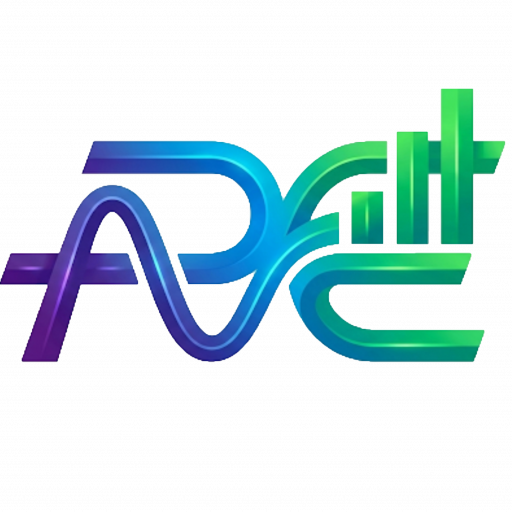- Field: Quantum Computing (specifically Quantum Annealing and Hybrid Solutions)
- Headquarters: Burnaby, British Columbia, Canada
- Founded: 1999
Core Innovation & Technology: D-Wave Systems is a pioneer in the development and commercialization of quantum annealing computers. In contrast to universal, gate-based quantum computers, which are designed for a broad spectrum of calculations, D-Wave focuses on the efficient solution of specific optimization and sampling problems. Their technology is based on superconducting qubits that operate at extremely low temperatures (near absolute zero) to optimally utilize quantum effects.
Their technology focuses on:
- Quantum Annealing Processors: D-Wave builds hardware that represents a physical analogue to complex optimization problems. The system finds the lowest energy state, which corresponds to the optimal solution of the problem. Current systems like “Advantage2” (generally available since May 2025) offer an increased number of qubits, improved connectivity, and longer coherence times, while maintaining a constant power consumption of 12.5 kilowatts.
- Superconducting Qubits: The processors utilize qubits made from superconducting materials, enabling quantum effects such as superposition and quantum tunneling. Recent improvements aim for higher performance in noisy environments.
- Hybrid Quantum Solutions: D-Wave develops a comprehensive software suite and systems that seamlessly combine their quantum annealers with classical computers. These hybrid approaches are crucial for leveraging the strengths of both architectures to solve more complex, practically relevant problems that go beyond the capabilities of a pure quantum annealer.
- Problem Formulation (QUBO): A significant component of their technology is the ability to translate real-world optimization problems into the Quadratic Unconstrained Binary Optimization (QUBO) format, which is solvable by their quantum annealer.
- Quantum-Enabled Blockchain Architecture: D-Wave has introduced an innovative “Proof of Quantum Work” (PoQW) architecture for blockchains that runs on their quantum processors. This aims to improve the security, scalability, and efficiency of distributed ledgers by directly generating and validating blockchain hashes on quantum hardware, potentially replacing energy-intensive classical mining processes.
Key Features and Differentiators:
- Specialized but Powerful Approach: Unlike universal quantum computers that are flexible for all algorithms, D-Wave specializes in specific classes of problems, particularly optimization and sampling. This allows them to offer systems with a very large number of qubits today, which are immediately usable for specific applications.
- Leading Scalability in Annealing: D-Wave was one of the first providers of quantum computers with thousands of qubits and continues this development with each new generation.
- Strong Focus on Real-World Use Cases: The company places great emphasis on helping customers solve concrete business problems, such as logistics optimization (e.g., route optimization for taxis in Beijing with Volkswagen), financial modeling, material science (e.g., modeling quantum materials with Forschungszentrum Jülich), machine learning, and even new approaches in cryptography.
- Comprehensive Cloud Access: D-Wave makes its quantum systems accessible via a robust cloud platform (e.g., via Leap), providing researchers and companies worldwide easy access to their hardware.
- Growing Commercial Traction: While many quantum computing companies are still in the research phase, D-Wave is seeing an increase in commercial adoption, as evidenced by the first sale of an Advantage quantum computer and strong revenue growth in the first quarter of 2025.
Market Position & Milestones:
- Pioneering Role: D-Wave is one of the oldest and most established companies in the quantum computing space, having significantly contributed to the development and commercialization of this technology.
- Public Listing: D-Wave Quantum Inc. is publicly listed on NASDAQ under the ticker QBTS, which provides them access to public capital, increases their transparency, and attracts institutional investors (who significantly increased their positions in the first quarter of 2025).
- Broad and Growing Customer Base: Notable clients and partners include Google, Lockheed Martin, Volkswagen, Los Alamos National Laboratory, and since 2025, Forschungszentrum Jülich in Europe, which has integrated a D-Wave annealing quantum computer into its infrastructure.
- Continuous Hardware Development: D-Wave has successfully brought multiple generations of its quantum annealing processors to market (e.g., 2000Q, Advantage, Advantage2), continuously improving performance and applicability.
- Challenges and Outlook: Despite strong revenue growth and technological advancements, D-Wave continues to face challenges such as high investment costs, operating losses, and a certain dependence on individual large customers. The quantum computing market is still young and volatile. Nevertheless, analysts and institutional investors see potential in D-Wave’s specialized approach and its ability to solve real-world problems today. The company announced a capital increase of up to 400 million US dollars in June 2025 to strengthen liquidity and finance further growth.

Leave a Reply